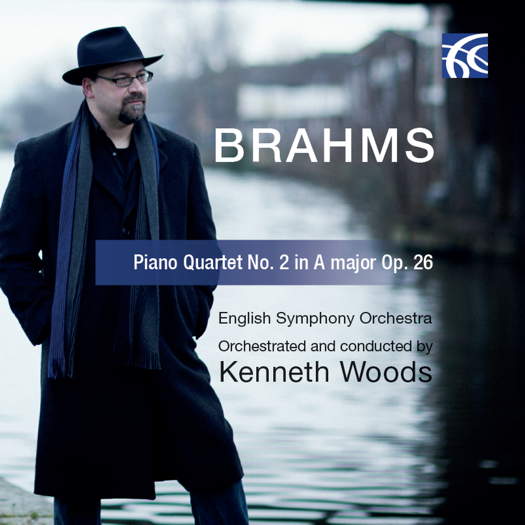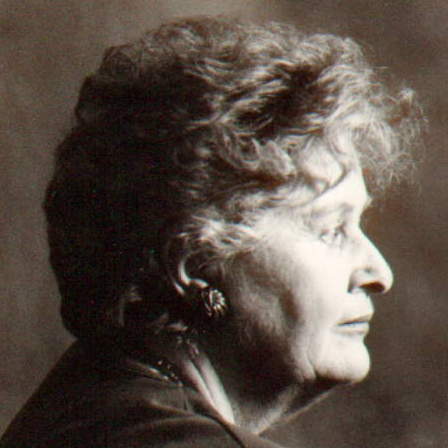 SPONSORED: CD Spotlight. A Very Joyous Disc - Brahms arranged by Kenneth Woods impresses Alice McVeigh.
SPONSORED: CD Spotlight. A Very Joyous Disc - Brahms arranged by Kenneth Woods impresses Alice McVeigh.
All sponsored features >>
AN ACT OF LOVE

MALCOLM MILLER discusses the play 'Dedication'
Dedication, currently on stage at London's Marylebone Theatre (7-24 June 2023), acted and performed by the American pianist and playwright Roger Peltzman, is a moving multi-media tribute to the memory of his uncle, Norbert Stern, an outstanding pianist whose life and career as a virtuoso pianist was brutally cut short by the Nazis in 1944. Superbly staged by the innovative NY director Jessi D Hill, with stunning multi-media effects and live musical performance, the show tells the story of how, aged only twenty-one, Stern had already, since his teens, garnered prizes for his virtuosity, including the King of Belgium's medal, at the Royal Conservatory in Brussels, the city to which his family had migrated in 1933 from Berlin to escape the Nazis. His parents were originally from Poland; and with his sister Beatrice the family enjoyed a certain normality until the Nazi occupation of Belgium in 1940.
Initially they avoided deportation by hiding in an attic, while the young pianist risked safety by going to a nearby house to practice the piano. On one fateful night the SS turned up and broke into the attic; by some miracle Beatrice had the idea of climbing onto the roof through the bathroom window, but the rest of the family were taken away and murdered tragically in Auschwitz. Some days later Beatrice, ingeniously disguised as a nun, was taken to a convent, and was saved by the resistance, eventually travelling to the USA. It is Beatrice who, as Peltzman's mother, provides the link of past and present, connecting to his own personal journey of discovery and of self-discovery.
Peltzman recounts anecdotes about his youth in post war American Jewish society with lightness and humour, contrasting the attitudes of his parents, his mother who maintained a mistrust of the Europe of her youth, and his more relaxed and tolerant father. He paints a picture recognizable as the experience of the children of survivors, resonating with aspects of 'second generation trauma', such as the need to reconnect with the absences which have been so present in the family narrative: lost family members of whom photos, documents and family stories remain. Living with 'ghosts' is how Peltzman poetically portrays it, notably his grandparents and uncle. Through his quest for enlightenment, involving some detective work and sheer coincidental luck, he brings those ghosts to life, as if communicating with his uncle across the decades, and achieves closure.
Being a musician himself, the story of his quest also maps onto his own remarkable artistic development, from a film student turned music major, jazz player in a London pub (the 'Goose and Firkin') to a concert pianist who has filled New York concert halls and currently nurtures a teaching practice based on the affirmation of joy in music-making. A key turning point occurs upon the loss of his mother - he had lost his father aged twelve - which seems to have spurred Peltzman to action. Inspired by the example of Beethoven battling against odds, he recreated himself as a concert pianist and teacher.
Then came some unexpected luck: the daughter of the Belgian family on whose piano Stern had practiced in the 1940s had been intrigued to find out what had happened to Norbert, and contacted the archives at Yad Vashem, the Holocaust Museum in Jerusalem. Details of the Stern family had been supplied post-war by Beatrice, and they shared contact details for Peltzman, leading to an invitation to Brussels to meet her, and to play the very piano his uncle had practiced on all those years before.
The story of this encounter is one of the tremendously moving highpoints of the play. It led to Peltzman's idea of a performance tribute to his uncle, and a CD, the proceeds of which would support the Holocaust Museum in Brussels, on the site where nearly thirty thousand Jews, including his family, were deported. 2013-4 saw the release of this Chopin recital CD, Dedication, recorded in the hall of Brussels Conservatory, remarkably on the same stage as that on which his uncle had performed some seventy years earlier.
What is most eloquent about Dedication, the play, is the way Peltzman interweaves history and his own subjective spiritual journey, both coming to terms with his family's fate, and bringing his uncle to life as if in a continual dialogue. There is humour in his depictions of their conversations about his practicing, and interpretations, as if the lost past becomes a living present and presence. We learn about Norbert's beneficent character, guiding his nephew on the path to self-realization, an imaginary, yet very genuine, dialogue of souls. So close is their connection that one of Peltzman's friends remarked, following the Brussels concert: 'That was Norbert!'

Roger Peltzman performs in 'Dedication' at London's Marylebone Theatre
Thanks to Peltzman, there is now a biographical entry on Norbert Stern, pianist, on the Music and the Holocaust website (holocaustmusic.ort.org), a CD and a play (with related film). Certainly there are a number of compelling Holocaust-related dramatisations, yet the uniquely personal interplay of past, present and future, balancing painful trauma with hopeful promise, gives Dedication a particularly individual emotional impact. At the same time, Peltzman's individual story has a universal message, summarized in one of several quotations screened as a backdrop, taken from an Emily Dickinson poem: 'to be remembered is near to being loved'. Indeed this memorable show is an act of love.
Highly praised at its premiere at the Edinburgh Fringe in 2022, the play is currently enjoying a run at the Marylebone Theatre until 24 June 2023. A few tickets are still available at the time of writing.
Copyright © 16 June 2023
Malcolm Miller,
London, UK



